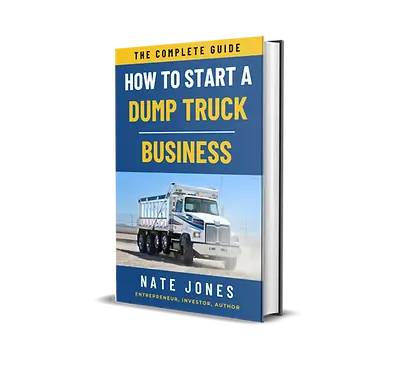Is Owning a Dump Trucking Business Profitable?
- Nate Jones, CPCU, ARM, CLCS, AU

- Aug 6, 2025
- 2 min read
Updated: Aug 11, 2025
If you're considering starting a dump trucking business, you're likely wondering whether it's a profitable venture. The short answer is: yes, it can be but profitability depends on how well you manage your operations, secure contracts, and control costs. Dump trucks are essential in industries like construction, landscaping, and infrastructure development, making them a consistent source of demand.

At Wexford Insurance, we specialize in helping dump truck operators find the right commercial trucking insurance to protect their investment and meet legal requirements. Whether you're just starting or already own a dump truck business, understanding the financial potential is key to long-term success.
What Makes Dump Trucking Profitable?
Dump trucking can be profitable due to:
High demand in construction and municipal projects
Flexible work options (contract, hourly, or per load)
Scalable operations start with one truck and grow your fleet
Specialized hauling (e.g., asphalt, demolition debris, aggregates)
However, profitability depends on factors like fuel costs, maintenance, insurance, and how efficiently you find and complete jobs.
Revenue Potential
Dump truck operators typically earn:
$70–$120 per hour depending on region and job type
$150,000–$300,000+ annually for owner-operators with steady contracts
Higher margins for those who own their trucks outright and manage their own schedules
💡 Tip: Profitability increases when you build long-term relationships with contractors and municipalities.
Managing Costs
To stay profitable, monitor:
Fuel and maintenance expenses
Insurance premiums
Driver wages (if hiring)
Permit and licensing fees
Wexford Insurance helps you find affordable dump truck insurance tailored to your business needs, reducing financial risk and keeping you compliant.
How to Maximize Profitability
Start with a solid business plan
Define your services, target clients, pricing, and growth strategy.
Choose the right truck
Buy or lease based on your budget. Consider fuel efficiency and load capacity.
Get proper licensing and permits
Register your business and ensure your truck meets DOT requirements.
Secure insurance coverage
Protect your truck, cargo, and liability with specialized insurance from Wexford.
Find reliable contracts
Network with contractors, bid on jobs, and use platforms like:
Construction Bid Source
SAM.gov for government contracts
Market your services
Build a website, list your business on Google, and use social media to attract clients.
💡 Want a full startup guide? Download our eBook: “How to Start a Dump Trucking Business”

Recommended Insurance Coverage for Dump Truck Businesses
Wexford Insurance offers specialized coverage to protect your operations:
Commercial Auto Liability – Covers bodily injury and property damage caused by your truck.
Physical Damage Coverage – Protects your truck from collisions, theft, and vandalism.
Motor Truck Cargo Insurance – Covers the materials you haul in case of damage or loss.
General Liability Insurance – Protects against third-party claims unrelated to driving.
Workers’ Compensation – Required if you have employees; covers job-related injuries.




